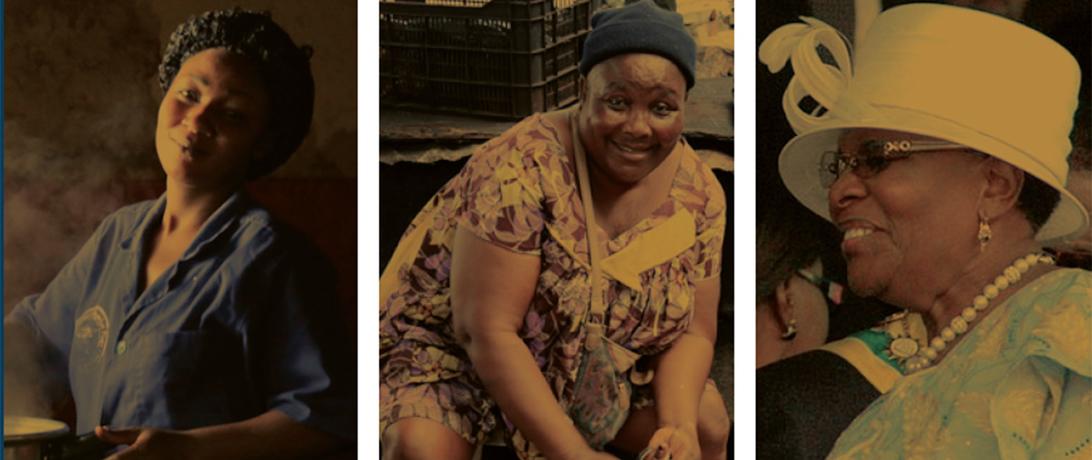
Defying traditional expectations, women are increasingly present at sea. Their full participation in the economy, political decision-making, and society is key to addressing maritime challenges, but gender equity in the maritime space is pervasively overlooked.
Women are mending nets in Sierra Leone, building boats in Somalia, and marketing goods across Africa’s coastal communities. Defying traditional expectations, women are increasingly present at sea. Their full and meaningful participation in the economy, political decision-making, and society is key to addressing maritime challenges, but gender equity in the maritime space is pervasively overlooked.
Today, One Earth Future, the International Maritime Organization (IMO), and the United Nations Office on Drugs and Crime (UNODC) host “Women, Peace, and Maritime Security: Equal Opportunities in Maritime Security.” The event brings together experts from the maritime sector and the women, peace, and security movement to discuss issues such as the importance of women in maritime security, obstacles to women’s participation, and how to integrate the women, peace, and security agenda into the maritime space. Promoting the agenda and its landmark Resolution 1325 is vital to maritime security.
Women contribute directly to coastal stability while playing important roles in solutions to maritime crime. Women’s income goes directly to feeding their families and benefiting communities at a rate greater than men’s.[1] Women strongly influence behavior and decision-making in their families and communities, and this role can be wielded to create positive change and prevent participation in criminal activity, such as piracy. Increases in gender equality contribute to more sustainable peace. Women’s political representation is critical to peacebuilding and conflict prevention. Women’s participation in peace agreements increases, by more than a third, the likelihood of that agreement’s having lasting impact.[2] Inversely, gender inequality is associated with increased corruption and violence.[3] Gender inequality may also amplify grievances around resource allocation, thereby increasing maritime instability.[4]
Progress Being Made in Women's Participation in Maritime Security
Africa is making progress toward improving women’s participation in policy making. In the African Union, 19 member countries have adopted national action plans. In Senegal, women’s representation in government has tripled since 2009. In The Gambia, Ghana, Guinea-Bissau, Namibia, and Nigeria, women hold half or more of the countries’ high-level political positions.
However, women also disproportionately face challenges to maritime-based employment and economic prosperity. They encounter numerous legal and cultural obstacles. Fewer than one-third of the countries featured in OEF’s Stable Seas Maritime Security Index have laws against gender discrimination in hiring or mandate equal compensation. In Sierra Leone, women in the fisheries sector face barriers to accessing credit. [5] As a result, women remain underrepresented in maritime positions, from navies to fisheries management, and their salaries are typically lower than those of their male counterparts.
Maritime crime affects women in unique ways. Illegal, unreported, and unregulated fishing reduces food and economic security, and women’s nutrition is most impacted when food is scarce. Illicit trade undermines economic security, and women are more likely to live in poverty. Trade in arms and drugs may facilitate or hide human trafficking, into which women and girls may be lured. Girls escaping desperate economic circumstances and forced labor in Gabon may become subjected to prostitution networks, while boys may be trafficked to work aboard fishing vessels. Illicit maritime activities do not exist in a vacuum, and what happens at sea has ripple effects on land. This event is a great step toward addressing the gap between gender equity and maritime security.
While women’s perspectives are essential to advancing maritime security, other identity factors—such as race, ethnicity, gender identity, income, education, social status, and age—also profoundly shape the way people are affected by maritime challenges. Poverty and lack of education reduce economic opportunities and increase exposure to labor and sex trafficking. As shown in Gabon, children may be especially vulnerable. This underscores the importance of including diverse perspectives in policy making and maritime security practices.
[1] Marilyn Porter and Rose George Mbezi, “From Hand to Mouth: Fishery Projects, Women, Men and Household Poverty,” Canadian Journal of Development Studies 31, no. 3–4 (2011): 381–400.
[2] Valerie M. Hudson, Bonnie Ballif-Spanvill, Mary Caprioli, and Chad F. Emmett, Sex and World Peace (New York: Columbia University Press, 2012).
[3] Laurel Stone, “Annex II: Quantitative Analysis of Women’s Participation in Peace Processes,” in Marie O’Reilly, Andrea Ó Súilleabháin, and Thania Paffenholz, Reimagining Peacemaking: Women’s Roles in Peace Processes (New York: International Peace Institute, June 2015).
[4] Maurice Beseng, “Women, Artisanal Fishing and Maritime Security in Africa,” Maritime Security, 31 January 2017.
[5] P. B. Browne, “Women Do Fish: A Case Study on Gender and the Fishing Industry in Sierra Leone” in M. J. Williams, N. H. Chao-Liao, P. S. Choo, K. Matics, M. C. Nandeesha, M. Shariff, I. Saison, E. Tech, and J. M. C. Wong, eds., Global Symposium on Women in Fisheries (Penang, Malaysia: ICLARM—The World Fish Centre, 2002), 169–172
Article Details
Published
Topic
Program
Content Type
Opinion & Insights